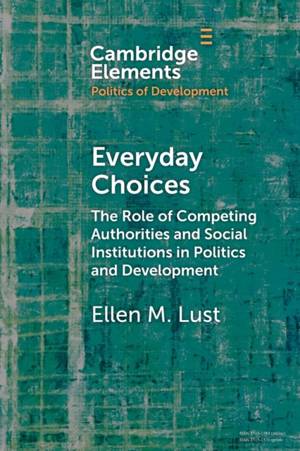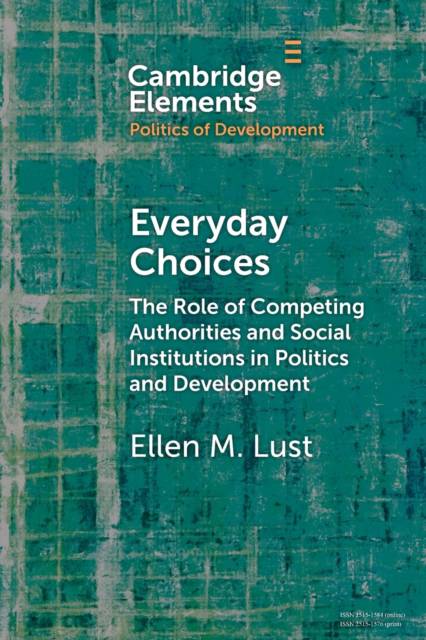
- Afhalen na 1 uur in een winkel met voorraad
- Gratis thuislevering in België vanaf € 30
- Ruim aanbod met 7 miljoen producten
- Afhalen na 1 uur in een winkel met voorraad
- Gratis thuislevering in België vanaf € 30
- Ruim aanbod met 7 miljoen producten
Zoeken
Everyday Choices
The Role of Competing Authorities and Social Institutions in Politics and Development
Ellen M Lust
€ 31,95
+ 63 punten
Omschrijving
Scholars and practitioners seek development solutions through the engineering and strengthening of state institutions. Yet, the state is not the only or the primary arena shaping how citizens, service providers and state officials engage in actions that constitute politics and development. These individuals are members of religious orders, ethnic communities, and other groups that make claims on them, creating incentives that shape their actions. Recognizing how individuals experience these claims and view the choices before them is essential to understanding political processes and development outcomes. This Element establishes a framework elucidating these forces, which is key to knowledge accumulation, designing future research and effective programming. Taking an institutional approach, this Element explains how the salience of arenas of authority associated with various communities and the nature of social institutions within them affect politics and development. This title is also available as Open Access on Cambridge Core.
Specificaties
Betrokkenen
- Auteur(s):
- Uitgeverij:
Inhoud
- Aantal bladzijden:
- 75
- Taal:
- Engels
- Reeks:
Eigenschappen
- Productcode (EAN):
- 9781009306126
- Verschijningsdatum:
- 8/12/2022
- Uitvoering:
- Paperback
- Formaat:
- Trade paperback (VS)
- Afmetingen:
- 152 mm x 229 mm
- Gewicht:
- 136 g

Alleen bij Standaard Boekhandel
+ 63 punten op je klantenkaart van Standaard Boekhandel
Beoordelingen
We publiceren alleen reviews die voldoen aan de voorwaarden voor reviews. Bekijk onze voorwaarden voor reviews.











